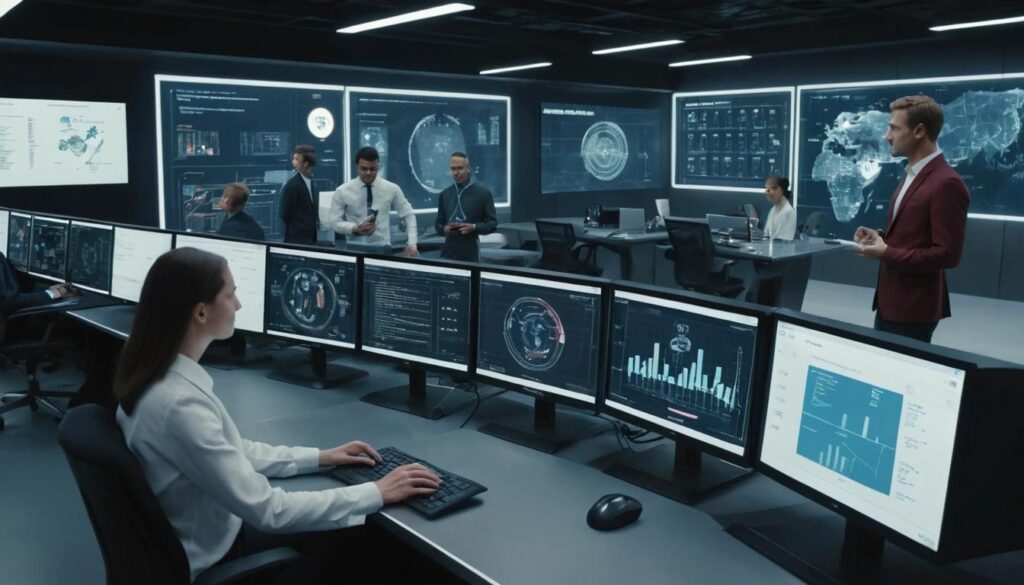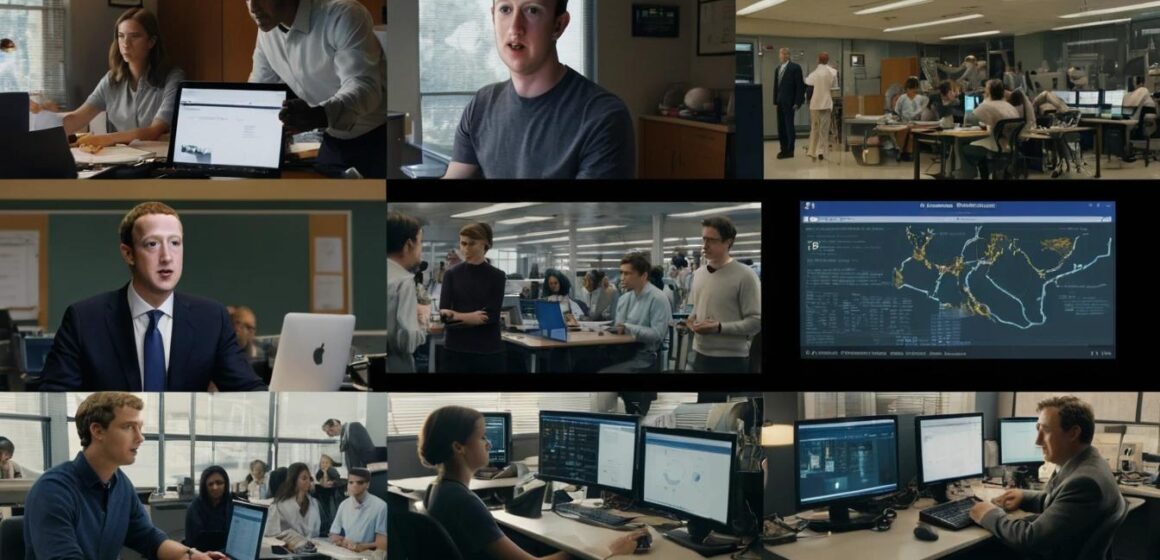The intersection of artificial intelligence (AI) and the film industry has been a source of fascination for audiences and filmmakers alike. As AI technology advances rapidly, it opens a myriad of avenues for storytelling, particularly in the realm of business. Cinema often serves as a reflection of societal anxieties and aspirations; it is in this light that many films explore what the future might hold for enterprises driven by AI. This blog post will delve into several key movies that exemplify this innovative fusion, providing insights into how they depict the future of business.

1. The Social Network (2010)
Overview
Directed by David Fincher, The Social Network chronicles the founding of Facebook and the complex relationships that intertwined with its meteoric rise. While the film primarily focuses on the personal drama between its founders, it also sheds light on the disruptive potential of technology in business.
Implications for Business
The film highlights themes of innovation vs. ethics and the impact of social media on commerce. As businesses increasingly harness data analytics and machine learning algorithms to understand consumer behavior, The Social Network serves as a cautionary tale about the personal and ethical ramifications that can arise alongside technological advancements.
2. Ex Machina (2014)
Overview
Ex Machina, directed by Alex Garland, presents a chilling narrative of human-like AI and the ethical dilemmas it triggers. The story revolves around a young programmer selected to participate in a groundbreaking experiment involving a highly advanced AI named Ava.
Implications for Business
The film provokes intense questions about AI in the workplace—especially concerning automation and the future of job roles. As businesses adopt AI-driven solutions for efficiency, Ex Machina challenges viewers to consider the boundaries of human oversight and the consequences of decision-making delegated to machines.
3. Her (2013)
Overview
Spike Jonze’s Her offers a poignant look at personal relationships in an increasingly digital world. The film follows Theodore, a lonely writer who develops an emotional bond with an advanced AI operating system named Samantha.
Implications for Business
This film explores the notion of personalized customer experience, highlighting how AI can enhance engagement in business. As companies employ AI to tailor services and products to individual preferences, Her serves as a lens through which we can examine both the exciting possibilities and the emotional alienation AI might create.
4. Moneyball (2011)
Overview
Moneyball tells the story of Billy Beane, the general manager of the Oakland Athletics, who applies data analytics and statistical methods to redefine baseball operations. While not strictly a narrative about AI, the use of statistical modeling hints at the future of data-driven decision-making.
Implications for Business
The film illustrates the power of big data and analytics in transforming traditional practices. As businesses increasingly rely on sophisticated algorithms to inform strategy, Moneyball exemplifies how data can disrupt industries—advocating a move from intuition-driven decisions to model-based reasoning.
5. Transcendence (2014)
Overview
In Transcendence, Johnny Depp plays a scientist who uploads his consciousness into a computer, exploring the concept of a super-intelligent AI that surpasses human capabilities. As the story progresses, the implications of such technology unravel, leading to unforeseen consequences.
Implications for Business
The film raises critical discussions about the potential power and dangers of AI in business environments. It emphasizes the importance of governance and ethics in AI applications, urging businesses to proceed with caution as they integrate these cutting-edge technologies.
Conclusion: The Future of Business in an AI-Driven World
As cinema continues to evolve, the exploration of AI’s role in transforming business landscapes is becoming more prominent. The films discussed here serve not only to entertain but also to ignite meaningful conversations about the ethical, societal, and economic implications of AI.
When we walk away from these cinematic experiences, we are left pondering the fundamental questions of humanity in a world increasingly governed by machines. How will businesses navigate these challenges? What safeguards should we implement to protect our interests? As audiences, our participation in these dialogues is essential, and cinema will always play a crucial role in shaping our understanding of the forces that will define the future of business.




Leave a Reply